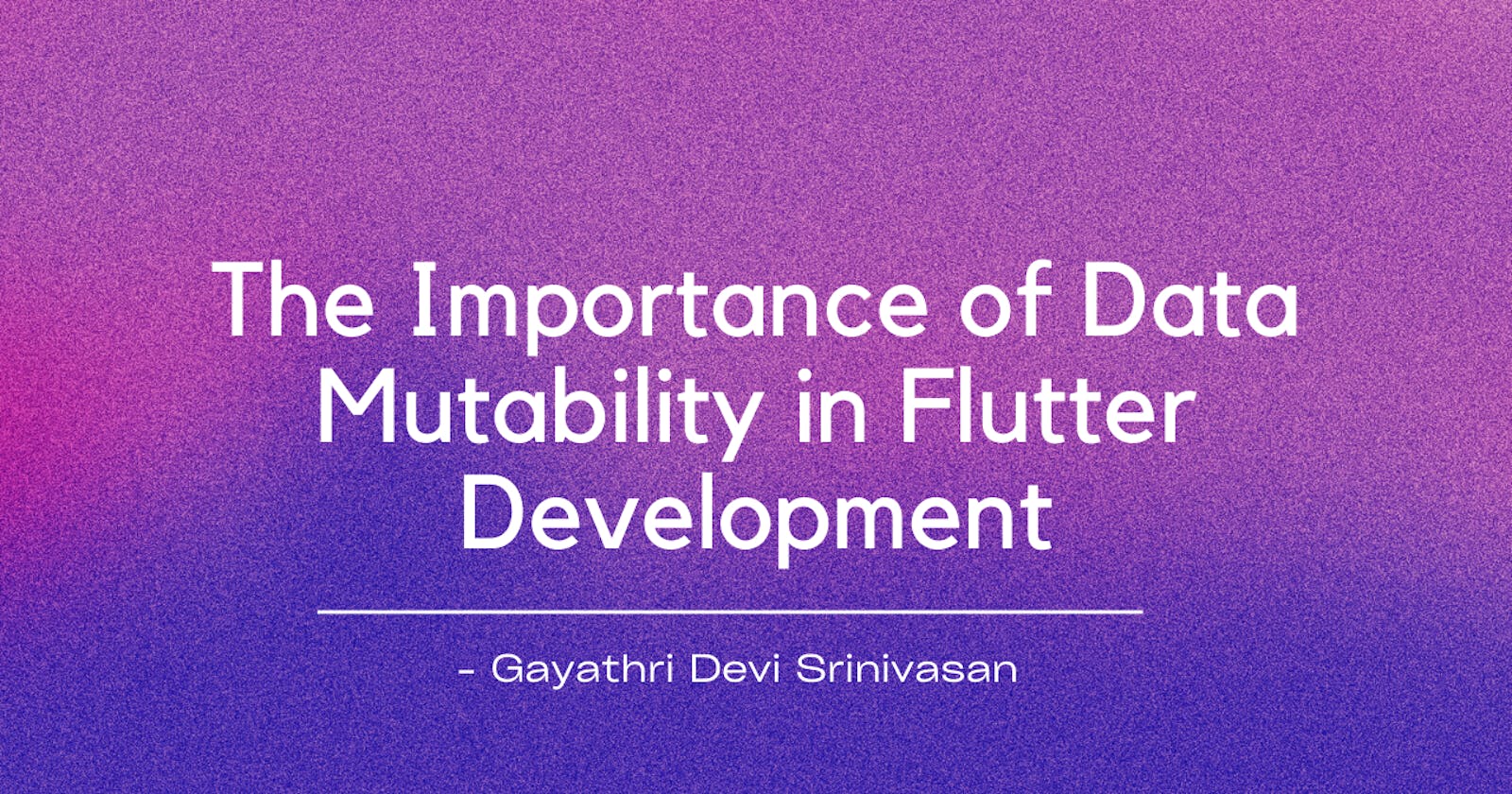The Importance of Data Mutability in Flutter Development
In this article, we will discuss Data Mutable in Flutter, which is an important concept in Flutter data management.
What is Data Mutable?
Data mutable refers to the ability to change the state of an object. In Flutter, a data class is considered mutable if it allows for changes to its properties after it has been initialized. A mutable data class is used when the properties of the class need to be updated frequently.
How much important is it to make a data class mutable?
The importance of making a data class mutable depends on the use case of the application. If the application requires frequent updates to the data, then it is important to make the data class mutable.
For example, if an application has a form that allows users to edit their profile, then the data class representing the user profile needs to be mutable to allow the changes to be reflected in the application.
Benefits of making data mutable
The benefits of making a data class mutable are as follows:
a. Flexibility: A mutable data class allows developers to modify the properties of an object after it has been initialized. This provides flexibility in data management.
b. Efficiency: If an application requires frequent updates to the data, a mutable data class can improve efficiency as it reduces the overhead of creating new objects for every change.
c. Easier to maintain: A mutable data class is easier to maintain as it allows developers to make changes to the properties of an object without having to create a new object.
When can we ignore it?
There are some cases where making a data class mutable is not required. For example, if the data class represents a read-only data source, like configuration data, then it does not need to be mutable. Also, if the data class is used in a context where changes to the object are not expected, like a function argument, then it can be immutable.
Challenges in making data mutable
State arguments should have zero argument constructors.
We should never pass or couldn't able to pass anything from the statefulwidget to the state object.
Code Demo
Let's take an example to understand the concept of mutable data class in Flutter. Suppose we have a data class called User which represents the user's profile.
class User
{
String name;
int age;
User(this.name, this.age);
}
In this example, the User class is not mutable as its properties cannot be modified after the object has been initialized. If we want to make it mutable, we can add setters to its properties.
class User {
String name;
int age;
User(this.name, this.age);
set setName(String name)
{
this.name = name;
}
set setAge(int age)
{
this.age = age;
}
}
In this modified User class, we have added setters to the name and age properties. Now, the User class is mutable as we can modify its properties after it has been initialized.
void main() {
User user = User('John Doe', 25);
// Print the initial values
print(user.name); // John Doe
print(user.age); // 25
// Update the user's profile
user.setName = 'Jane Doe';
user.setAge = 30;
// Print the updated values
print(user.name); // Jane Doe
print(user.age); // 30
}
In this code demo, we have initialized a User object with the name 'John Doe' and age 25. Then, we updated the user's profile using the setters and printed the updated values.
Conclusion
In conclusion, data mutability is an important consideration in Flutter development, especially when frequent updates to data are required. Making a data class mutable provides flexibility, efficiency and ease of maintenance. However, there are cases where making a data class mutable is not necessary, such as read-only data sources or function arguments. Ultimately, the decision to use mutable or immutable data classes depends on the specific use case of the application.
Thanks for reading!
Comment down your thoughts on using data as mutable or immutable in the flutter ✍️
